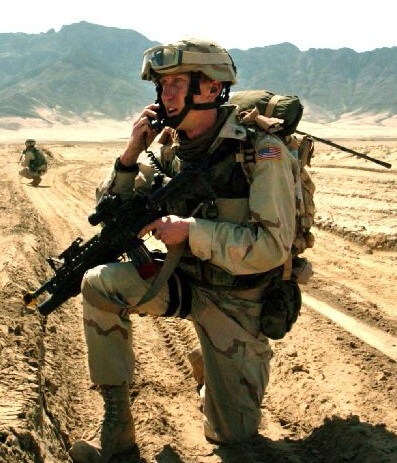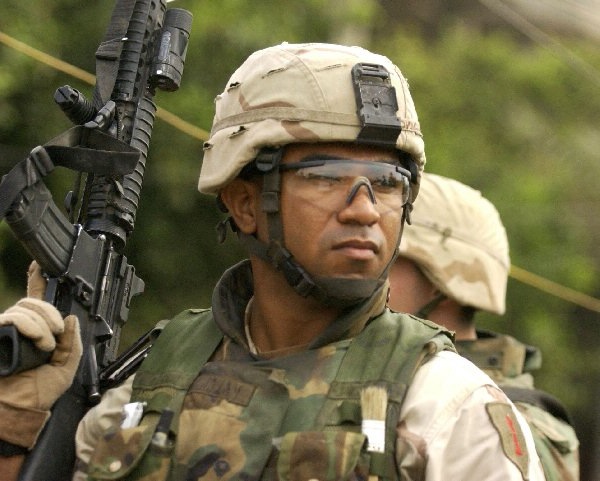
Military students who have completed distance learning college courses or in-service training may be in for an unpleasant shock when they attempt to transfer these online school credits to another college.
They may find that a new online university will not accept the online course credits or degrees they have completed.
The major reason? Accreditation.
Regional Accreditation is Best
All online schools claim to be accredited by some organization or another—but not all accreditation carries equal value.
Accreditation is confusing. In most areas—pro sports, for example—something that is “national” is considered to be better than something which is “regional.”
Not so with online course and college accreditation.
When it comes to college accreditation, a “regional accreditation” designation is the most highly regarded. Courses and degrees taken at a regional accredited online university enjoy the greatest acceptance and transference among other online colleges nationwide.
National accreditation for online schools, on the other hand, carries less universal acceptance.
The majority of online schools with regional accreditation either will not accept credits or degrees from nationally accredited schools or severely limit the types of credits and courses they will recognize.
Military Distance Education Benefits Pays for Both
The military pays tuition assistance for both online school courses with regional and national accreditation.
But you can’t assume that just because the service paid for your classes, the online school credits will transfer to any college you later choose to attend.
“I’ve seen where people got degrees funded by the military and tried to transfer to a master’s program—and the degree is either not accepted anywhere or they can’t get regionally accredited schools to accept it,” says Manfred Meine, professor of public administration at Troy University, a public, regionally accredited school which serves a large and mobile military student population.
“There are some predatory practices out there with some schools, where they’ll say, ‘we’re accredited,’ but people don’t understand what that means.”
Louis Martini, director of military education at Thomas Edison State College in New Jersey, another school with a large military student population, agrees that students are confused by accreditation.
“Students don’t understand regional accreditation versus national accreditation,” says Martini. “They think if the military is going to pay for a course through tuition assistance that it will transfer … but it doesn’t.”
For a detailed explanation of regional and national accreditation, visit GetEducated’s article on distance learning and college accreditation.
For Transfer Credit Protection – Stick with SOCs
The military has established cooperative organizations of colleges for different branches of service. These organizations are called Servicemembers Opportunity Colleges (SOC). Member colleges that belong to these cooperative organizations agree in advance to accept online course transfers from other member colleges.
Each branch of the military sponsors a SOC: SOCNAV (for the Navy), SOCAD (for the Army) and SOCMAR (for the Marines) are all examples of Servicemembers Opportunity Colleges network.
However, the military does not require online students to take classes from SOC network schools, and it will provide tuition assistance to colleges that are not part of these networks.
Plus, says Martini: “Many students have never heard of SOC, nor do many of them that have heard of it understand how it works.”
For more information about SOC networks and military tuition assistance, visit the SOC homepage and click the link on the left that fits your branch of service.
Why Academic Residency Matters
Accreditation issues aren’t the only reason military students might see their distance online school credits fail to transfer.
A student might have plenty of credits from a regionally accredited school—but only be able to “count” half of them, due to specific school policies on how many transfer credits will be accepted or applied to any one degree program.
 • For example, universities usually have a “residency” requirement. This doesn’t mean a student has to live at the school. It means that the student must take a certain number of credit hours directly from that school in order to earn a degree. Most online colleges require that the student’s final year’s worth of college degree credits be taken at that school.
• For example, universities usually have a “residency” requirement. This doesn’t mean a student has to live at the school. It means that the student must take a certain number of credit hours directly from that school in order to earn a degree. Most online colleges require that the student’s final year’s worth of college degree credits be taken at that school.
• Another factor is how credits will be applied or distributed. A college degree is comprised of required (or “core”) courses as well as electives. A distance learning student may have enough total credits to earn a degree—colleges require a minimum of 120 semester credit hours or 190 quarter credits to earn a bachelor’s degree—but if those credits are not distributed correctly among required core and elective subjects, not all old credits will transfer to the new college.
“I see senior non-commissioned officers who have earned a lot of credits over their 15 to 30 year careers—90 to 120 credits,” says Sue Dewan, executive director for military education at Excelsior College. “But if they sign up with a school that has a residency requirement, or which doesn’t accept credit for core courses in that degree program, they will need quite a lot more credits.
“This can be timely as well as costly.”
Excelsior’s lack of a residency requirement is unusual among online colleges with regional accreditation. Schools typically require about one-quarter of the credits for a degree be earned at that school—usually the last year or so of a degree program.
Thomas Edison State College splits the difference. It requires military distance education students completing degrees to earn 18 undergraduate credits through the college, as part of a 120-credit bachelor’s degree. (Eighteen credit hours equal five classes, or a typical one-semester load.
Accepting Nontraditional Credits
Another area where schools vary is in the amount of “nontraditional” credits they are willing to award a service member.
Nontraditional credits include credits earned from placement and assessment tests, plus credit for career and life experience. (Servicemembers are able to turn the training they received and the duties they performed into college credit, through an evaluation program by the American Council on Education.)
Some schools limit the number of these credits more restrictively than others.
Columbia College of Missouri’s online education division accepts only 60 nontraditional credit hours, or half of any bachelor’s degree.
Miami of Ohio limits nontraditional credit hours to 32 hours; the University of Alabama limits this form of transfer credit to 45 semester hours.
If you have earned a substantial number of online school credits as a military student, compare the transfer and military credit policies of online degree programs, as well as their national or regional accreditation, carefully before you enroll. Taking this extra step can save you both time and money in the online degree completion process.
Related Resources
